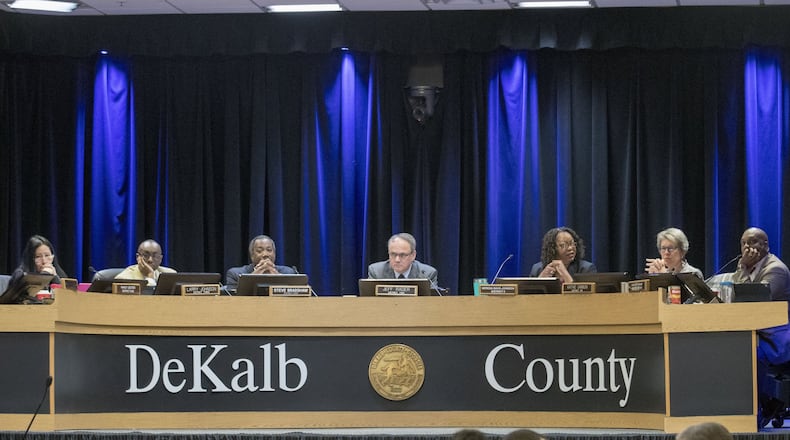However, Donna Coleman-Stribling said the vote should be taken again to remove concerns that commissioners were not fully transparent about the decision to increase their base pay by 60 percent.
“While not criminal, omitting the item from the actual agenda prior to the meeting did give the appearance of impropriety on behalf of the Board of Commissioners,” Coleman-Stribling said in a statement. “To restore faith in government and in keeping with the transparent spirit of the Open Meetings Act, we strongly encourage the Board of Commissioners to reconsider their salary increase and to obtain additional training as it relates to the Open Meetings Act.”
Commissioner Jeff Rader, the presiding officer, said he does not agree with the solicitor because the vote was legal. He said the board acted only after consulting their legal advisors.
“I’m not going to move that we reconsider the vote because it would void the action that was made in good faith,” he said Tuesday.
Commissioner Nancy Jester, who was the sole dissenting vote on the pay raise issue, took the opposite stance.
“I agree with the solicitor’s recommendations to reconsider the pay increase,” she said.
Coleman-Stribling's statement is in response to a June letter from state Attorney General Christopher Carr. He said the pay raise vote violated the Open Meeting Act, but the window had closed for him to reverse the measure. Instead, Carr suggested that commissioners or anyone that facilitated the meeting could face criminal or civil actions carrying fines up to $1,000.
The salary increases are scheduled to go into effect Jan. 1. Although Coleman-Stribling has decided against meting punishment, other legal challenges are pending.
Community activist Ed Williams and several other plaintiffs filed a lawsuit in Superior Court. Williams also filed a report with the Decatur Police Department alleging that the Feb. 27 vote violated open meeting laws.
The pay raises were not on the agenda, and commissioners approved the measure without any explanation or debate. The meeting was held in the Maloof Auditorium in downtown Decatur, which put it in the jurisdiction of the local police force.
County CEO Michael Thurmond received a 3-percent salary boost because of that vote, but he had little input and was not at the meeting when it occurred. That increase mirrors the salary boost received by rank-and-file employees as part of the annual budget.
Thurmond has been named in the various legal challenges because he also benefited from the February vote.
Williams said he decided to go to the police in hopes of forcing the courts and law enforcement to look into the matter after Carr's letter gained little traction. A spokeswoman for Decatur police said Williams' complaint is still an active investigation.
DeKalb County’s attorneys have asked the court to dismiss Williams’ lawsuit. The county argues that Williams does not have standing to sue and that the pay raises were valid because legal notices were published in the local Champion newspaper for three consecutive weeks preceding the vote.
In court filings, Williams said he was pursuing the case because DeKalb residents feel frustrated and powerless.
“The citizens in DeKalb County are crying out for justice,” he wrote. “Citizens want to know what they can do to hold their government officials accountable when officials violate the law and act outside their authority.”
About the Author
Keep Reading
The Latest
Featured




